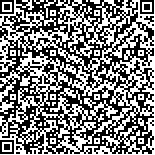| 本文已被:浏览 781次 下载 4332次 |

码上扫一扫! |
| 基于社会-生态系统理论的土地健康诊治框架 |
|
李卓1,2,胡起源1,韩文超1,孙亚楠1,查思含1,王林林1,郭文华2,3,肖飞2,3,刘文超2,3,孙丹峰1*
|
|
|
| (1.中国农业大学 土地科学与技术学院, 北京 100193;2.自然资源部城市国土资源监测与仿真重点实验室, 广东 深圳 518034;3.自然资源部信息中心, 北京 100036) |
|
| 摘要: |
| 为实现土地资源可持续利用,构建人地关系视角下的土地健康诊治框架。运用CiteSpace文献计量方法,对土地健康研究进行知识图谱分析,同时基于社会-生态系统(Social-ecological systems,SESs)理论,构建土地健康诊治框架。结果表明:1)土地健康科学内涵的发展过程可作为土地生态系统与社会经济知识健康运行的诊治依据;2)土地健康研究呈现多元分散特征,健康机理、评估方法与实践层面适应性管理是研究热点;3)土地健康诊治框架将社会经济系统和土地生态系统有机整合,由外部驱动子系统、内生驱动子系统和土地利用系统表征3部分组成;4)该诊治框架可以根据特定土地问题进行相应调整,适用性强。因此,基于SESs理论构建土地健康诊治框架有助于理解人地系统的作用过程和互馈机制。 |
| 关键词: 土地利用 土地健康 社会-生态系统理论 知识图谱 诊治框架 |
| DOI:10.11841/j.issn.1007-4333.2021.12.17 |
| 投稿时间:2021-05-08 |
| 基金项目:自然资源部城市国土资源监测与仿真重点实验室开放基金项目(KF-2020-05-026);国家自然科学基金项目(41801202) |
|
| A diagnostic framework for land health based on social-ecological systems |
|
LI Zhuo1,2,HU Qiyuan1,HAN Wenchao1,SUN Yanan1,ZHA Sihan1,WANG Linlin1,GUO Wenhua2,3,XIAO Fei2,3,LIU Wenchao2,3,SUN Danfeng1*
|
| (1.College of Land Science and Technology, China Agricultural University, Beijing 100193, China;2. Key Laboratory of Urban Land Resources Monitoring and Simulation of Ministry of Natural Resources, Shenzhen 518034, China;3.Information Center of Ministry of Natural Resources, Beijing 100036, China) |
| Abstract: |
| The purpose of the study was to construct a diagnostic concept framework for land health based on social-ecological systems(SESs), and achieve sustainable land management. Knowledge domain mapping analysis was conducted on land health based on CiteSpace literature review method. The results show that: 1)The concept evolution of land health can be used as diagnostic criteria for determining land ecosystem and social-economic functioning healthily; 2)Researches on land health are focused on the mechanism, methodology, and practical management, indicating a diverse and distinct characteristic; 3)The diagnostic framework mainly consists external drive subsystem, internal drive subsystem and land use system, and successfully integrates socio-economic system and land ecosystem; 4)The structure of diagnostic framework is problem oriented, which is strongly adaptive and can constantly be revised according to the evaluation results. In conclusion, the diagnostic framework bridges the gap regarding the cognition of processes and cross-feedback mechanism of human-land relationship. This study provides a novel insight to improve the harmony between humankind and nature. |
| Key words: land use land health social-ecological systems mapping knowledge domain diagnostic framework |